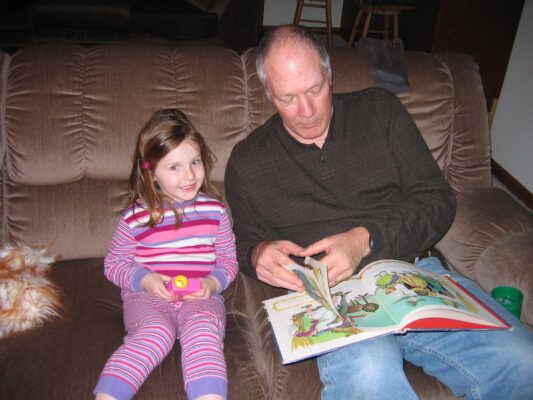
I’m an English major and an aspiring author. Therefore, it’s terrifying to me that people aren’t reading like they used to.
As social media and generative AI have risen to the forefront of how people engage with the world, reading long-form literature and engaging critically in face-to-face conversations have been neglected. The tremendous importance of reading is something I’ve been thinking about since reading “Middlemarch: A Study of Provincial Life.”
This semester, I’m in associate professor of English Ashley Miller’s class “The Realist Novel (and Beyond).” The realist novel is a literary movement which seeks to invoke sympathy in readers by writing about ordinary people rather than traditional heroes.
At the beginning of the semester, Miller challenged us to elongate our attention spans and read long-form fiction, assigning the 794-page-long “Middlemarch” by George Eliot. Last Wednesday, we took our midterm exam over the novel.
In the midterm, Miller included an excerpt from an episode of the podcast “Hard Folk” titled “What is AI Doing to Higher Education?” In the episode, D. Graham Burnett, professor of history at Princeton, discussed the shift in literacy.
“Long-form immersive literacy is coming to an end as a widespread cultural phenomenon. People do not read now like they did ten years ago,” Burnett said in the podcast.
He also said that in the humanities, part of the reason people go to college is to read books, “but you can’t anymore, because nobody can read them.”
The prompt for our midterm was to write whether we agreed with Burnett, and how we felt “Middlemarch” shaped us, if at all. I’ve already written that essay for Miller, and I won’t rewrite it here. But the exam spurred my thinking about the implications of a society in which no one reads.
What if We All Stopped Reading?
Let’s take a moment to imagine a world where nobody reads anymore. A world where we all doomscroll, quoting “brain rot” to our friends instead of quotes we enjoyed from novels read in our free time.
In this world, critical thinking skills and attention spans would be at an all-time low. We’d be surrounded by advertisements, pop-ups and television shows about the very devices holding our minds captive.
In this dystopian society, when we sit around our dinner tables, we’d be glued to our devices instead of connecting with those around us. In fact, the dinner table wouldn’t be the only place we’d take our beloved electronics. The subway, sports games, our classrooms, the toilet and even our beds would never see us without our phones in our hands.
If we all stopped reading, here’s what might happen: We could lose libraries. Book clubs could become nonexistent. Human authors could cease to exist, because generative AI could write for them – or just steal their ideas.
Believe it or not, this imaginative world I’ve described is eerily similar to the current one in which we reside. So my question is, what should we be doing about the state of reading – or the lack of it – in our world?
Why We Need to Read Now More Than Ever
I see the irony in the fact that the people I want most desperately to reach likely won’t even read this article, because they’re non-readers. I also don’t want to come across as some prestigious English major who belittles everyone for wanting to distract themselves from the world’s horrors via their phones. All I’m asking is for you to consider sometimes finding that distraction in a book instead.
I want to live in an educated society. I hope to be part of a world filled with people who aren’t afraid to read banned books, and who yearn to learn about the world around them by perusing texts.
So, what exactly are the benefits of reading? The National Library of Medicine says reading fiction can be relaxing, reduce dementia risk and make us more understanding. Empathy is one of the primary goals of the realist novel.
Before I read “Middlemarch,” the thought of finishing nearly 800 pages felt surprisingly daunting. I’ve always been a reader, but lately, easy to finish romances have been my go-to. Gone are the days when I’d read several-hundred-page fantasy novels, and don’t even get me started on series.
Before short-form content like Instagram Reels and TikTok – although I’ve had the latter app deleted since 2021 – stole my attention span, I would devour book series like nobody’s business. I thought regaining my love for long fiction would never return, but reading “Middlemarch” showed me otherwise.

The act of reading hundreds of pages about ordinary people who deal with weddings, financial struggles, choosing career paths and living life in ordinary ways taught me something invaluable: People, whether from current times or the nineteenth century, are deserving of our sympathy.
Ultimately, reading novels makes us more sympathetic. It is imperative that we are kind to our neighbors. We must seek to understand the difficulties other people go through, because we’re all living for the first time. We all learn to stand up, take our first steps and bumble our way through our imperfect lives.
Reading provides a window into what other people’s lives are like. We see how their identities and situations may differ from ours, and we can carry that new understanding into our interactions with the people and world around us.
So, I implore you. Please pick up that book that’s been collecting dust on your shelf. Go get that library card you’ve been thinking about. Read like there’s no tomorrow. Who knows? Reading just might inspire you to change the world, one book at a time.

It was the best of times. It was the worst of times. – Dickens
Well stated. I couldn’t agree more with the message expressed in this article — thank you!
So much to think about. How some books you can’t get into and others you can’t put down!